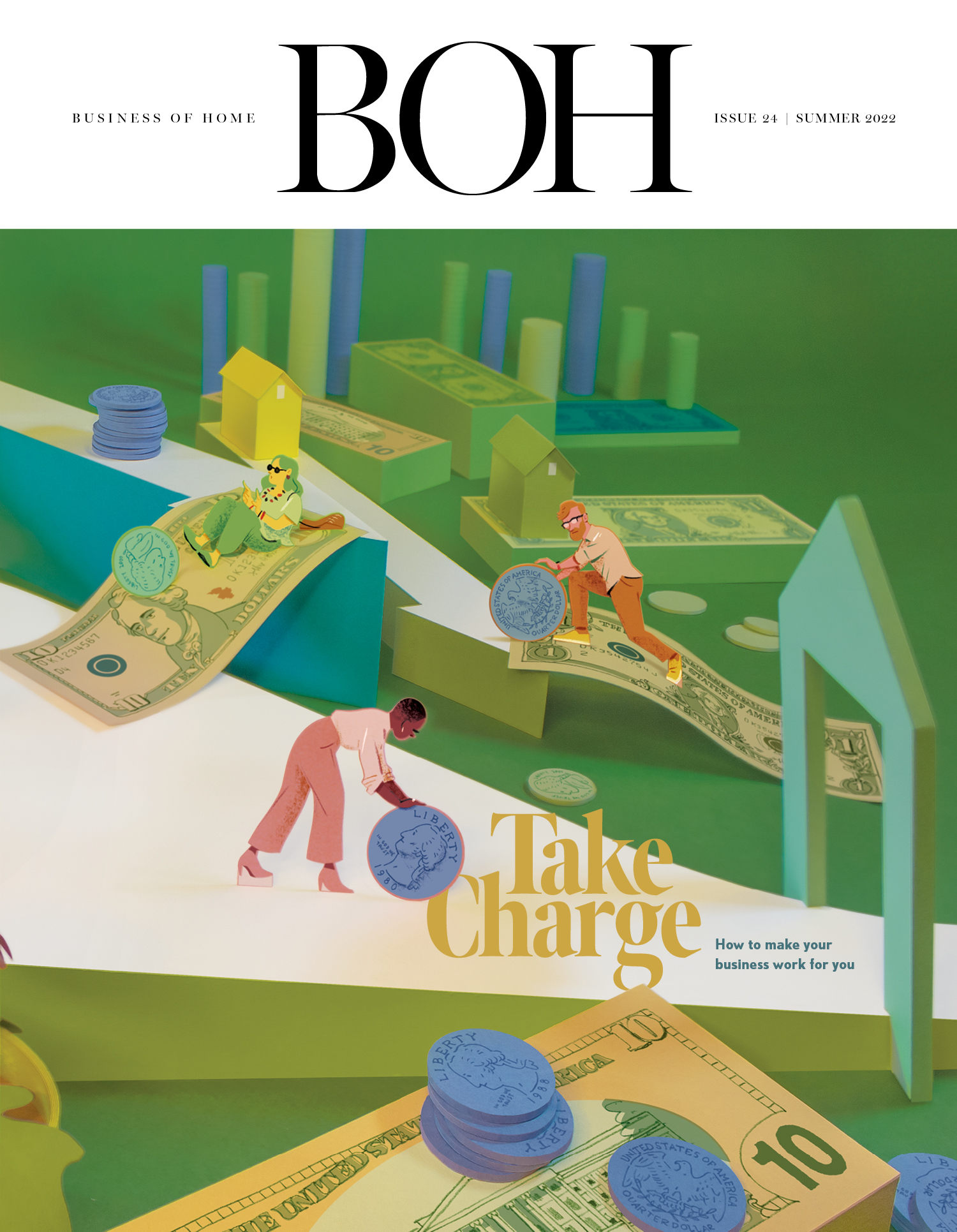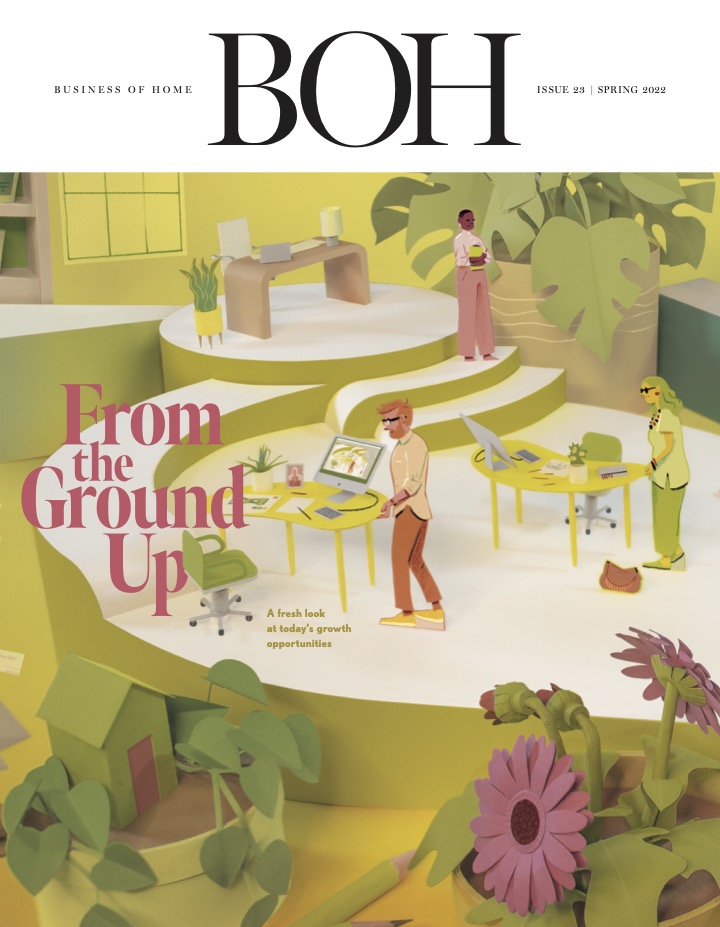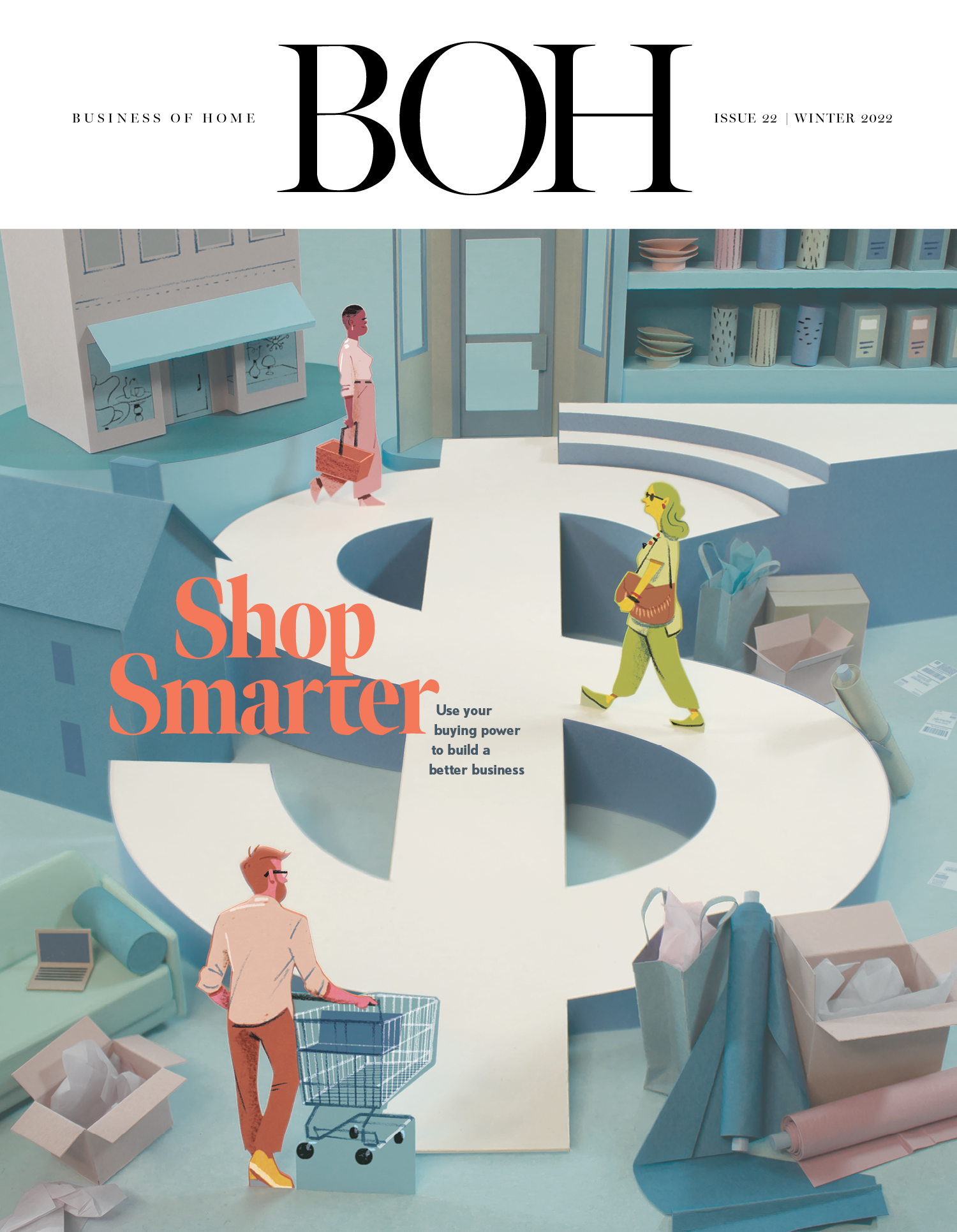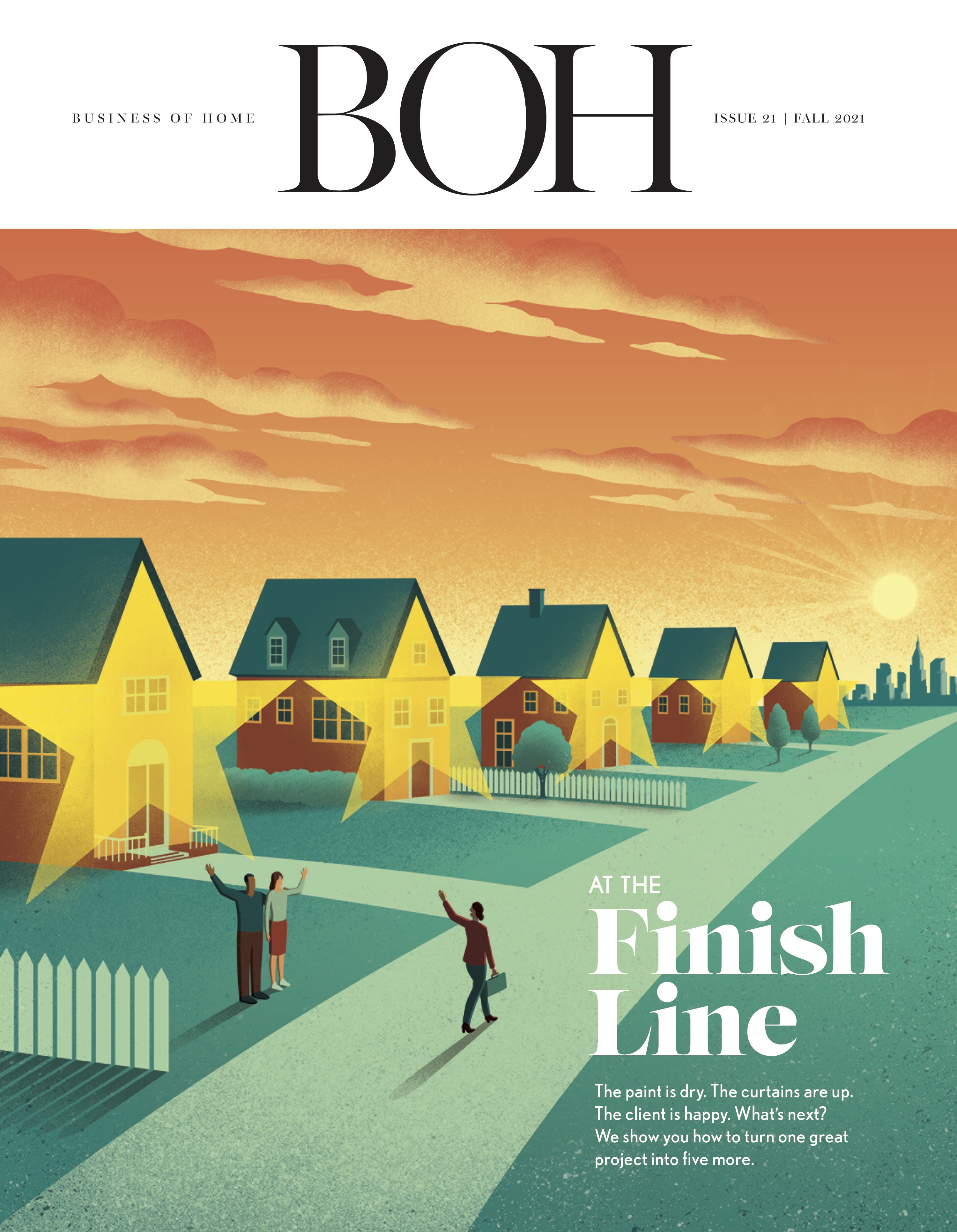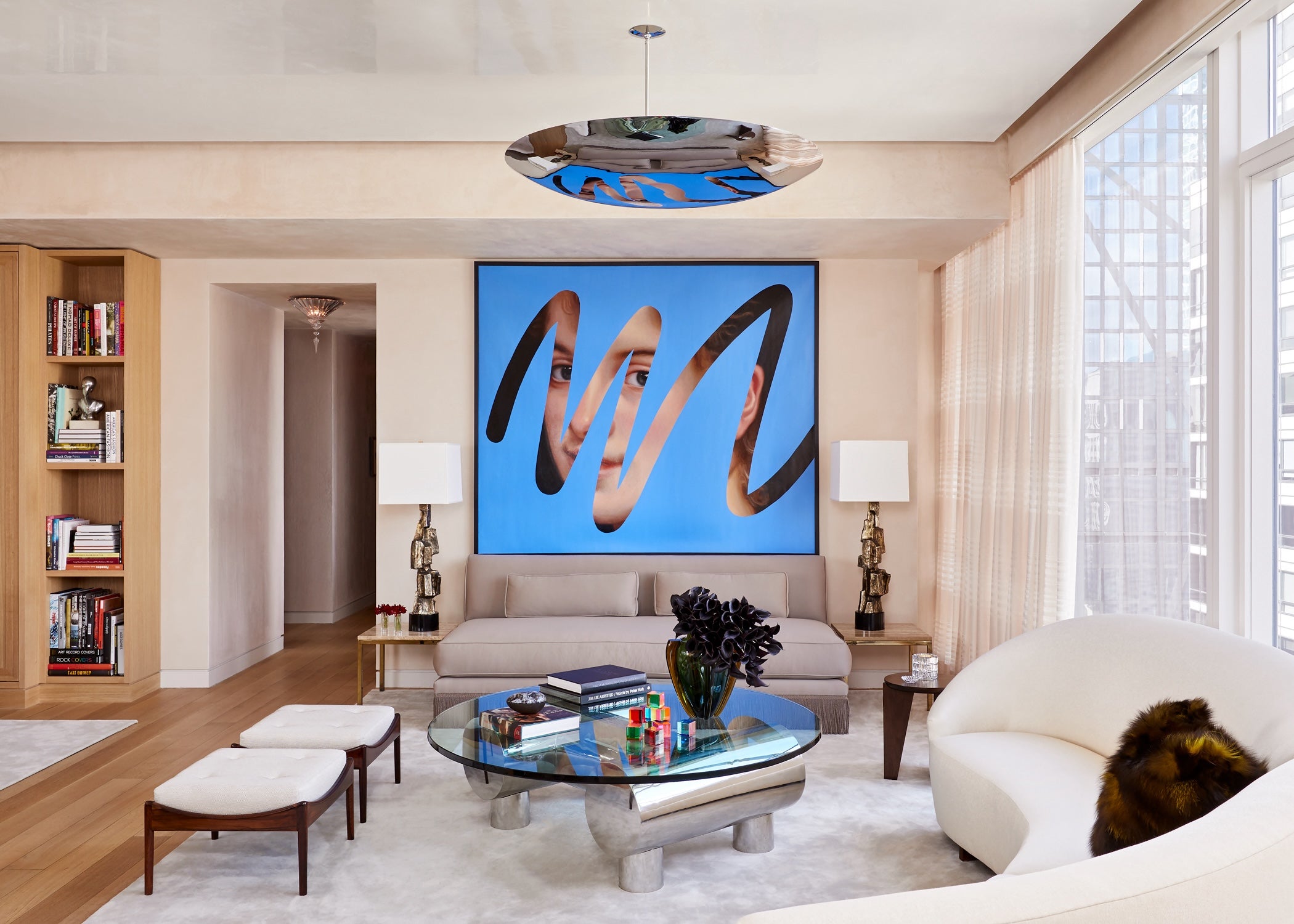Knowing when to say no can be almost as important as knowing when to say yes. This week, we asked 12 designers—Kate Figler, Maggie Griffin, Austin Handler, Casey Keasler, Debbie Mathews, Kyle O’Donnell, Mary Patton, Alexander Reid, Sam Sacks, Tess Twiehaus, Steph Viesta and Liz Williams—about where they draw the line.
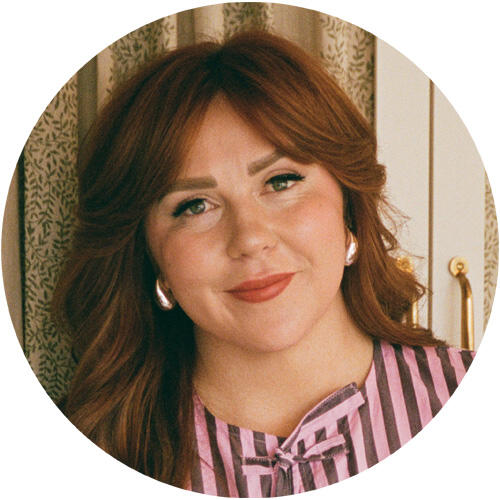
Unrealistic Expectations
“The biggest reason [to say no] is not being aligned on expectations. This can take different forms, such as budget or timeline. Ultimately, if someone wants us to magically make their home beautiful, but they don’t want to wait the time it takes to follow our process or don’t want to pay for it, my hands are tied. Being transparent from the jump about what is possible and how we will get from point A to point B is crucial. If the potential client is receptive to that, we’re typically good to go!” —Tess Twiehaus, Tess Interiors, Los Angeles and New York

Three’s a Crowd
“We’ve encountered three primary reasons why projects aren’t a great fit for us. The first is a situation where the homeowners have mismatched expectations of what they would like from a quality standpoint relative to what they are willing to spend. Timing is the second reason. Our calendar is typically booked out months in advance, and we regularly receive requests from prospective clients to turn around a comprehensive design plan within a short time frame. We’ve developed a well-thought-out design process that works, and we are not willing to compromise to meet an unrealistic timeline. Lastly, a client who doesn’t appreciate our aesthetic or wants a finished product that we just can’t envision [is a reason to say no]. We’re approached several times a year by prospective clients who want something far afield from our look. While some of these could have been home runs from a financial standpoint, it just doesn’t make sense for our firm.” —Steph Viesta, Studio Seva, Westport, Connecticut

Stand Your Ground
“If the project does not involve at least one whole room or the whole house, or if it does not meet our minimum budget, it usually disqualifies us from the project. Next, if a potential client wants to negotiate the terms and conditions of our agreement or if they have an unreasonable timeline, they’re surefire signs that we won’t be a good fit for each other. Lastly, if we determine that our design aesthetic is not compatible with the clients, we will pass on the project.” —Debbie Mathews, Debbie Mathews Antiques & Designs, Nashville

Trust Your Gut
“I will turn down a project when I have a gut feeling that it is not a good fit between the potential client and me. This can be because of differing tastes or styles, an unreasonable budget or deadline, or when a potential client redlines your letter of agreement and basically wants to change the way you charge. I have learned that initial feelings are usually right and to go with your gut!” —Liz Williams, Liz Williams Interiors, Atlanta
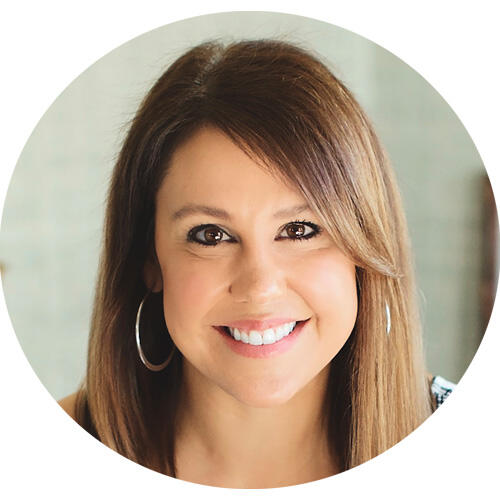
There’s Someone for Everyone
“When discussing client expectations, pricing and timeline, it becomes apparent quickly if those things align with our business practices. If we are having a difficult time getting on the same page, I am happy to politely tell them we are not the right fit. We have so many amazing designers in our region with a variety of fee structures, scopes of work and range of styles, and we are happy to make a recommendation if our firm doesn’t meet their needs.” —Maggie Griffin, Maggie Griffin Design, Gainesville, Georgia

Speed Dating
“For me, budget is secondary to the client’s vibe. I always ask: Why are they doing the project? Do they have an appreciation for design? It is a lot like dating: We need to like each other. They are not my boss, and vice versa. We are creating a home. I have found that it’s very important that we have a mutual connection—it holds us both accountable.” —Alexander Reid, Alexander M. Reid, New York

Play the Question Game
“Often the conversation is about educating our clients on the industry and process, because we are the experts. During a discovery call, I ask the client to share the scope and vision, and we discuss their dream project and the potential they see in the home. If this is still in alignment, I’ll dive into the process and what it’s like to work with a design team. What’s their style? While we work with all kinds of styles, I always like to know this to ensure it aligns with our core values in design. Have they gone through a renovation before? It’s not necessary, but it guides my questioning. Do they have the time and head space to sit in two-plus-hour meetings during the day on an ongoing basis and make hundreds of decisions tied to financial impact? I let clients know just because they are hiring a design team doesn’t mean they are released from work and giving feedback. What kind of decision-makers are they? And who is the key decision-maker? They will be making many decisions, and if they have a hard time making them or need a lot of time, this impacts the schedule, and it will be a long journey for everyone! When do they want or need to start? This is usually the first dealbreaker, because some clients want to start yesterday, and we are usually a few months out from being able to onboard a new project. Wrapping up, I let them know it’s possible to do this project cheaper and quicker with another team, but that’s not part of our core values. Since I began Casework, my focus has been to build long-term partnerships, be a creative thought partner and collaborator, and build a quality product that isn’t [exclusively] tied to an ROI but impacts their overall happiness.” —Casey Keasler, Casework, Portland, Oregon

Nothing Without Trust
“We were recently interviewed by a client with a big project, but they only wanted us to purchase items that gave them a discount; they essentially wanted to use us as a discount service. We had to turn this down. Generally speaking, as long as the client is pleasant and they agree to our contract, we will take on the project. The most fulfilling component of what we do is building a mutually trusting relationship with the client and delivering a space that they love.” —Kyle O’Donnell, Gramercy Design, New York

Stay True to Yourself
“At the heart of it, a prospective client should love your style. Presumably, that’s why they’ve called you. But every now and then, you may have a prospect that has their own vision that doesn’t necessarily align with your style. If you’re a design chameleon and are comfortable working in many different styles, that may not bother you at all. However, if you have a distinct look and style that you believe in, don’t try to be something that you don’t want to be, and be wary of anyone who expects that of you. You should have a sense of what you can do and want to do as a designer, and concentrate on that. On the one hand, it can be creatively fulfilling to tackle a new type of project that you’ve never done before ... But on the other hand, don’t try to be a jack- or-jill-of-all-trades—concentrate on what you’re good at, and don’t take on a project that you will struggle to execute. Your reputation as a creative professional is far more valuable than any single project.” —Austin Handler, Mabley Handler Interior Design, New York

Have It in Writing
“I send my contract out after any initial inquiry, which is very specific with expectations and billing terms. If the potential client is open to those terms, I will schedule a consultation to check out the scope of the project and see if it is mutually a good fit. It takes time and experience to really understand the type of client you work the best with.” —Mary Patton, Mary Patton Design, Houston
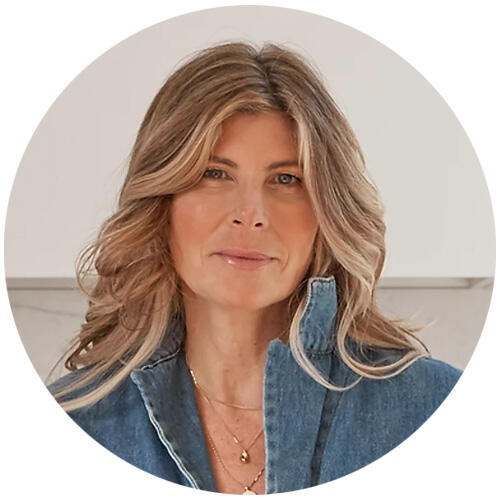
Nothing Ventured, Nothing Gained
“Turning down a project is a combination of Spidey senses and good old-fashioned economics. I will generally turn down projects when a client thinks they can do the work themselves but wants a ‘girlfriend to bounce ideas off of’ (I have had this said to me). A client with an unrealistic budget or multiple tiny projects upon which I can’t have a substantial impact is also a no-no. But a client who is totally batty may make it through the vetting process if their budget is big enough. I’ll often ignore the writing on the wall for the opportunity to do something really fantastic. I’m an optimist—I’ll try anything once, and if it doesn’t work out, well, I’ll spend a lot of time complaining and then walk away.” —Sam Sacks, Sam Sacks Design, Toronto

In The Zone
“The onboarding process for us is a nuanced one that is composed of many different factors—we are a small team, so we need to be selective in order to maintain our sanity! First and foremost, we consider our current pipeline, and if we have the bandwidth to take on the scope of work the client is requesting. Condensed timelines, rush requests and any ASAPs are reserved for existing clients—we have found it is really challenging to build a positive relationship when we are expected to work like magicians pulling rabbits out of hats. Next we look at the budget: We are deliberate in our efforts to educate clients on cost, but we also need to ensure the project will be a profitable one for our business. And we meet with prospective clients to pick up on any personality red flags like rudeness or a desire to pick apart our process. Lastly, we ask if the project is one that feels inspiring to us; we are a firm that is comfortable working within different aesthetics, but we draw the line when a project veers too far away from our zone of expertise.” —Kate Figler, Kate Figler Interiors, Nashville











